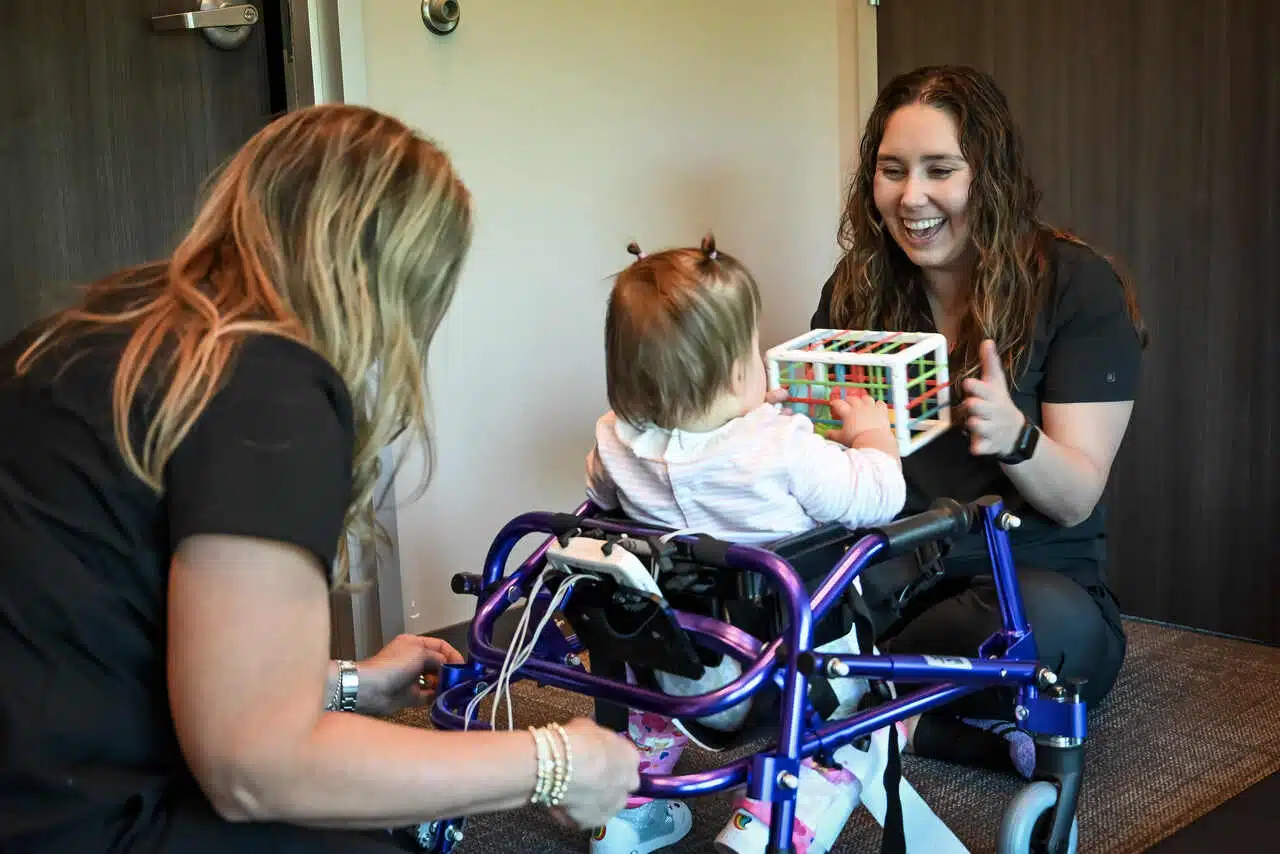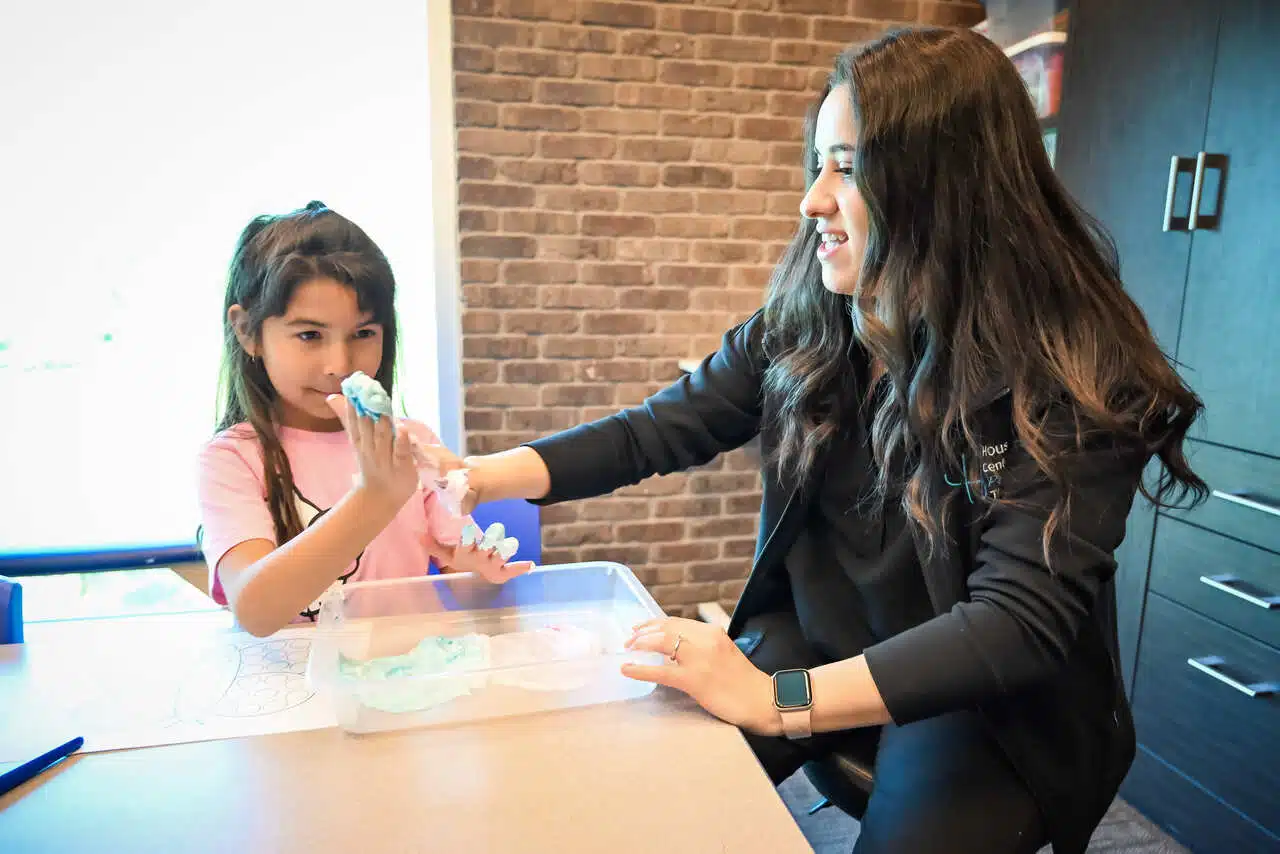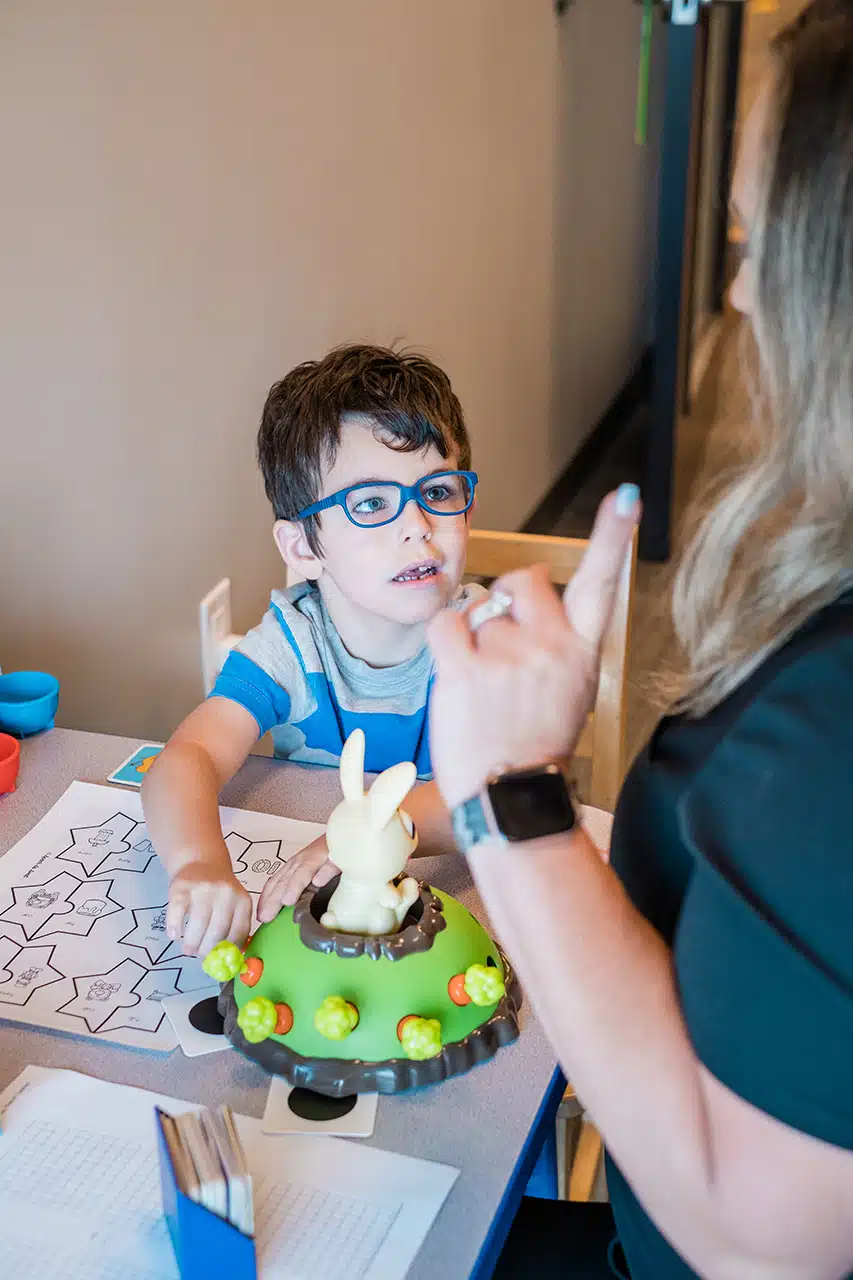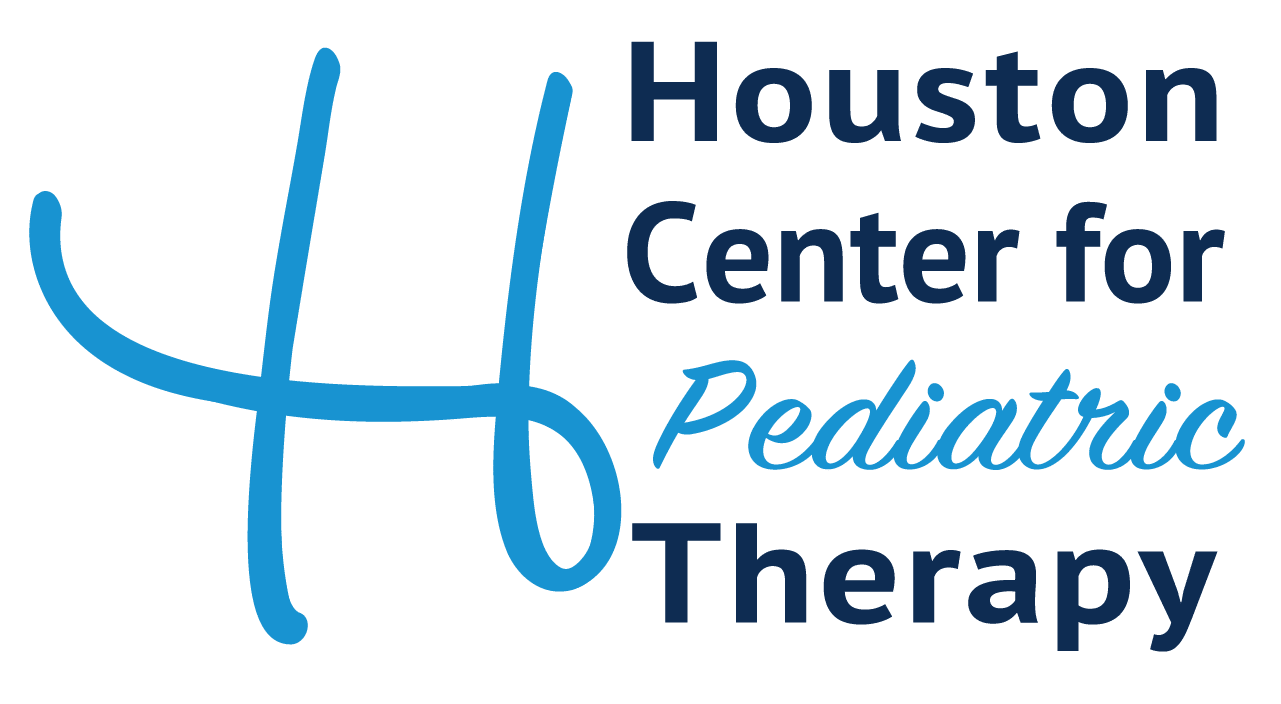
Our PTs are movement experts! They assist infants to learn how to move through their environment. They address movement concerns in older children such as coordination, balance, strength, and gait deficits to allow them to run, jump and play with their peers. PTs treat kids after injuries or surgery to help improve their mobility through their rehabilitative process. PT can address a variety of concerns including weakness, limited flexibility or range of motion, poor posture, difficulty/ irregular walking patterns, decreased balance and pain.
We feel that early intervention is extremely important! We work to prevent your child from having consequences from poor motor skills, mobility, or range of motion. Catching difficulties early can make a big difference in their development. A few things to look for in your new baby:
Prefers to turn head to one side (torticollis)
Doesn't bear weight on leg at six months
Doesn't sit by 8 months
Doesn't crawl by 12 months
Is not walking by 18 months
Areas address in PT include:
Torticollis
Delayed movement in infants (rolling, crawling, walking)
Poor sitting balance
Gait deficits (toe walking, toe in or toe out gait, frequent falls)
Decreased endurance/strength
Restricted range of motion
Decreased coordination for running, jumping, skipping
Decreased coordination for ball skills
Poor standing balance
Rehab post-orthopedic surgery
Rehab after traumatic head injury
Functional movements limited by pain syndromes
Difficulties with bowel/bladder management
Strong gross motor skills and mobility provide each child with confidence to play with other children, participate in extracurricular activities and feel confident in playing a sport!

What can you expect when your child receives Occupational Therapy?
Along with a thorough evaluation and treatment plan, we will guide you along the way so therapy carries over at home every day between sessions.
With our team approach, Occupational Therapy can assist Physical and Speech Therapies with strategies including positioning and sensory processing activities in order to enhance your child's progress across the board.
If your child has sensory processing issues, we evaluate and treat the following:
Tactile issues include defensiveness with difficulty tolerating touch and texture, difficulty with fit and feeling of clothing, getting hands messy or tolerating bathing, toothbrushing and haircuts, or a strong need to touch people and objects.
Vestibular or the sense of movement with difficulty tolerating going on swings or slides, and rides. On the other hand, your child may seek a lot of input with spinning and wanting a lot of movement.
Proprioception is the sense of where your body is in space. Poor proprioception can cause a child to be clumsy and bump into objects. They may apply too much pressure with tasks such as pressure with the pencil to the paper.
Auditory defensiveness is when a child cannot tolerate loud sounds or screen out extraneous sounds. They may cover their ears with their hands or become upset.
We provide a Sensory Diet for you to follow at home in conjunction with therapy activities to address any sensory issues present.
Feeding issues include the following:
Infants with poor suck and swallow with issues with breast or bottle feeding.
Babies having difficulty beginning solids with gagging or vomiting.
Babies with difficulty with the next stage introducing table foods with gagging, etc.
Children who become picky eaters and have a limited diet with only certain foods accepted. Children with low muscle tone or weakness in the oral facial muscles causing delayed feeding skills.
Children who have not developed biting and chewing skills in their mealtimes, limiting what foods they can handle.

Receptive & Expressive Language
Some children aren't able to understand or follow directions or they may have trouble problem solving; others may have a limited number of words, shorter sentence length, or organize their thoughts in a way that doesn't make sense. These problems fall under the category of receptive and expressive language, which can be treated through play with little ones or targeted therapy tasks with older children.
Language Fluency
Some children we see have difficulty pronouncing words correctly, stutter, or may have a nasal voice because of a cleft palate. All of which can be addressed by one of our certified Speech Pathologists.
Feeding Difficulties
Another growing population that we are serving are those patients with feeding difficulties. Children of all ages may show signs of a feeding difficulty – from of babies who cannot drink from the breast or bottle efficiently to children who may have aversions to textures or tastes that some would say are "extremely picky eaters," eating less than 10 foods in their diet. One of our therapists here is specifically trained to address these needs.
Augmentative & Alternative Communication
We have several therapists here extensively trained to work with children in need of assistive technology, also known as augmentative and alternative communication {AAC}. These children may be in a place in their lives where they cannot communicate with their mouths but still have a lot to say, so we give them a voice through whatever means suits them best.
One of the many benefits of receiving speech and feeding services from a clinic with three therapy disciplines (occupational, physical & speech) is the collaboration between our specialists and teams. If a child requires more than one therapy, we offer those appointments at one location with a team of therapists who collaborate to provide the care that is best for the child. We also love the learning and sharing of evidenced-based therapy care and tools between therapy disciplines. Our Speech Pathologists may assist our PTs or OTs in how to model language during their sessions while OTs may give Speech Pathologists some tips on how to help their clients reach optimum regulation for language learning or PTs may assist with posture/positioning for feeding.
Here at the Houston Center for Pediatric Therapy, each child has an entire team behind them working in their best interest to meet their individual needs in any way we can.
